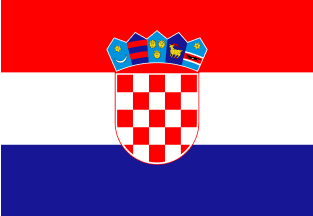Since joining the IHRA, the Republic of Croatia has established a network of teachers and professors committed to the subject of the Holocaust. IHRA membership has also helped increase access to numerous and diverse Holocaust-related teaching resources for educators. Existing resources have also been upgraded in accordance with the highest educational standards. In terms of memorials, the Jasenovac Memorial Site has become one of the most prominent and important museums in Croatia, enjoying international respect and recognition.

See all countries
- Argentina
- Australia
- Austria
- Belgium
- Bulgaria
- Canada
- Croatia
- Czech Republic
- Denmark
- Estonia
- Finland
- France
- Germany
- Greece
- Hungary
- Ireland
- Israel
- Italy
- Latvia
- Lithuania
- Luxembourg
- Netherlands
- North Macedonia
- Norway
- Poland
- Portugal
- Romania
- Serbia
- Slovakia
- Slovenia
- Spain
- Sweden
- Switzerland
- United Kingdom
- United States of America
Joined the IHRA
2005
International Holocaust Remembrance Day
27 January
Commemoration of the Roma and Sinti Genocide
2 August
Sara Lustig (Office of the Prime Minister) – Head of Delegation – Museums and Memorials Working Group
Lara Romano (Ministry of Foreign and European Affairs) – Deputy Head of Delegation
Michal Brandl (University of Zagreb) – Academic Working Group
Danijel Vojak (Ivo Pilar Institute of Social Sciences) – Academic Working Group
Loranda Miletić (Education and Teacher Training Agency) – Education Working Group
Snježana Šincek (Ministry of Science, Education and Youth) – Education Working Group
Dubravka Đurić Nemec (Ministry of Culture and Media) – Museums and Memorials Working Group
Matea Brstilo Rešetar (Croatian History Museum) – Museums and Memorials Working Group
Mario Jareb (Croatian Institute of History) – Academic Working Group
Denis Horvat (Ministry of Foreign and European Affairs)





